Feed aggregator
Japanese energy firm enters Australian carbon market
AU Market: Historic plantings ACCU trade goes for massive premium
Canadian miner says will apply for seabed mining licence next year, eyes 2025 start
Civil societies to take controversial Sabah forest carbon deal to court
Japanese telecom company latest to target domestic offsets from paddy rice cultivation projects
NZ Market: NZU price slips due to weak demand, regulatory uncertainty
Another tentative solar supply deal for controversial NT gas hub
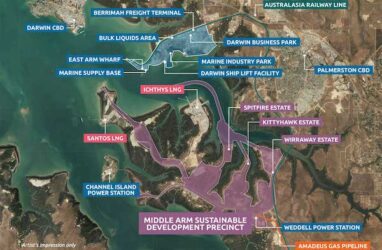 New MoU with a Korean electric company and a local business to supply solar for NT's Middle Arm precinct could compete with Sun Cable.
New MoU with a Korean electric company and a local business to supply solar for NT's Middle Arm precinct could compete with Sun Cable.
The post Another tentative solar supply deal for controversial NT gas hub appeared first on RenewEconomy.
Hemel Hempstead boy finds megalodon shark tooth at Walton-on-the-Naze
Queensland reviews wind farm rules as conservative anti-renewable dissent blows strong
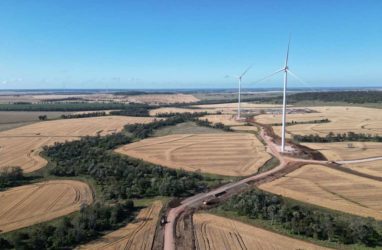 Queensland Labor announces review of rules governing wind farm development as anti-wind misinformation campaigns go into overdrive in the state.
Queensland Labor announces review of rules governing wind farm development as anti-wind misinformation campaigns go into overdrive in the state.
The post Queensland reviews wind farm rules as conservative anti-renewable dissent blows strong appeared first on RenewEconomy.
CP Daily: Tuesday August 1, 2023
Big batteries sets new milestone in Australia as sun sets and wind doesn’t blow
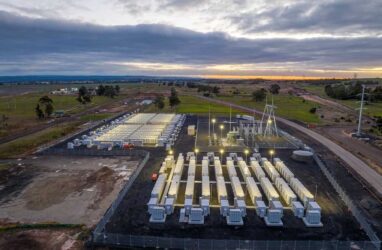 Big battery output hits new record high in main grid as sun sets, wind stops blowing and wholesale prices hit new market cap in one state.
Big battery output hits new record high in main grid as sun sets, wind stops blowing and wholesale prices hit new market cap in one state.
The post Big batteries sets new milestone in Australia as sun sets and wind doesn’t blow appeared first on RenewEconomy.
Location of giant pumped hydro project moved after community push-back
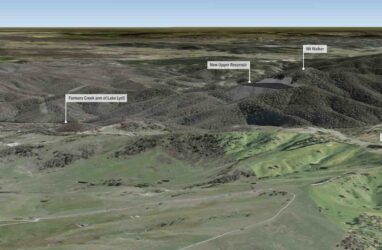 EnergyAustralia decides to shift top reservoir and bury the pump house of proposed pumped hydro project after feedback from the local community.
EnergyAustralia decides to shift top reservoir and bury the pump house of proposed pumped hydro project after feedback from the local community.
The post Location of giant pumped hydro project moved after community push-back appeared first on RenewEconomy.
UK carbon-negative construction materials firm raises £2 mln in extra funding
Climate tech company raises $10 mln in Series A funding round
US agriculture offsets firm adds legumes to cover crop mix
Korea consortium wins land deal for $10 billion Australian green ammonia project
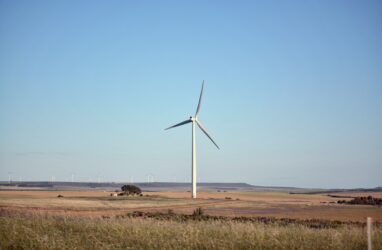 Korea consortium wins a land deal for one of largest green ammonia projects in Australia.
Korea consortium wins a land deal for one of largest green ammonia projects in Australia.
The post Korea consortium wins land deal for $10 billion Australian green ammonia project appeared first on RenewEconomy.
Forrest threatens to quit UK, says CCS is “waiting for the next idiot”
 Tory government steps up oil exploration and investments in CCS, a technology Twiggy Forrest says is "waiting for the next idiot to come along."
Tory government steps up oil exploration and investments in CCS, a technology Twiggy Forrest says is "waiting for the next idiot to come along."
The post Forrest threatens to quit UK, says CCS is “waiting for the next idiot” appeared first on RenewEconomy.
AGL helps Riverina almond farms kick diesel with three solar and battery microgrids
 AGL will build, own and operate the solar and battery based microgrids designed to slash the orchards' use of costly and polluting diesel fuel by up to 85%.
AGL will build, own and operate the solar and battery based microgrids designed to slash the orchards' use of costly and polluting diesel fuel by up to 85%.
The post AGL helps Riverina almond farms kick diesel with three solar and battery microgrids appeared first on RenewEconomy.



